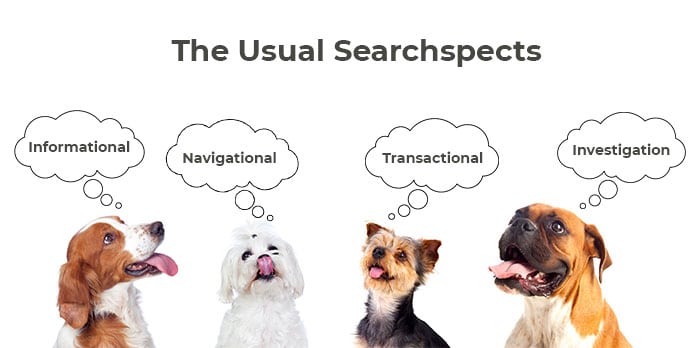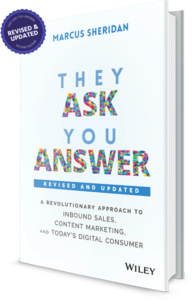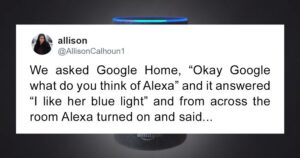
Back in the day, I used to talk endlessly about Utility Content, content marketing that solved a problem for the user. Your content should entertain, inform, or educate. It should serve a purpose.
All of that still matters but these days we need to also focus heavily on search intent. Why? Because Google does. What is search intent? Here is a definition from Alexa…
Search intent is the reason behind a searcher’s query on search engines. It represents the objective the searcher is trying to accomplish. For example, someone might want to learn about something, find something, or buy something. Search Intent: Definition and Resources – Alexa Blog
I’ve been reading some of the usual SEO prediction posts. You know the ones that come out this time each year where a host of experts make their predictions for all things SEO. We’re working on one too.
A recurring theme is search intent. Let’s break it down a bit.
Search Intent Breakdown
According to many sources and Google, search intent can be broken down into four categories.
- Informational
- Navigational
- Transactional
- Commercial investigation
These generally are what Google talks about in their eBook, Zero Moment of Truth. It’s been around for a while but still worth a read if you haven’t yet.
Anyway, let’s look at each type of search intent…
Informational Search Intent
This one is probably the simplest. A user needs information, goes to Google, and types in their query. This could be something like…
- What is string cheese?
- Michael Fagan (sorry, been watching the Crown)
- Directions to the Frederick Chamber (support your local chamber!)
- How to clarify butter
These queries are looking for information, pure and simple. They don’t want to be sold something, they want to be told something.
I know what you’re thinking, “isn’t asking for directions a navigational search intent?” Welcome to the world of misleading SEO terminology. I’ll explain…
Navigational Search Intent
While it sounds like a search meant to find your way somewhere, it’s not to a physical location. Navigational searches are searches for locations on the Internet.
For example…
- Bank login
- Google Analytics
- Netflix
- CNN/Fox News/Barnum and Bailey’s Circus
Instead of typing in an exact domain, you go to Google and ask for directions to that website or landing page. It’s as simple as that.
Transactional Search Intent
These are the searches all B2C companies want and all B2B companies think they want. Let me explain. B2C companies, or business to consumer, are looking to sell something, pure and simple.
So, a transactional search is one from someone with the intent to purchase something. We love buying signals, right? They could be along the lines of…
- Gumdrops for sale (goody!)
- Buy Nike running shoes
- Shop HVAC filters (have you replaced yours recently?)
- Warehouse Cinema coupons (really cool local theater, check it out if you’re in the Frederick, MD area)
Can you guess which of those are actual searches for me? Anyway, any B2C company would love to rank for these types of queries.
B2B companies, as I said before, think they want to rank for these, but it’s often not that simple. I will explain in the next search intent type, the one I think most B2B marketers should be focused on.
Commercial Investigation Search Intent
This is a fancy way of saying “tire kicking.” A tire-kicker is someone who is constantly looking at options, they do tons of research, and make very meticulous and informed buying decisions.

Now, the slang tire-kicker often refers to someone who will never buy. But, I think that sells the tire-kicker short. In a sense, most B2B buyers are tire-kickers.
Rarely will a B2B buyer signal a buying decision in an initial search for something from you, the B2B provider, unless it’s for something simple, a commodity like office supplies, or bottled water service.
A B2B buyer (and, increasingly B2C buyers) will do a ton of research before you are even aware they exist.
In the past, we would talk about the sales funnel, and while elements of that still make sense, I prefer Scott Stratten’s idea of a sales cloud better.
Scott Stratten, Funnel Vision, and The Sales Cloud
I spoke to Scott a while back for our Wellspring Digital Chat series. If you haven’t seen it, check it out! Scott is awesome!
Anyway, Scott argues, correctly in my opinion, that no sale occurs along a straight line. Buyers will research, ask on social channels, read reviews, etc., before they give any sort of buying signal to a B2B company.
So, while many marketers are talking about creating content along a sales funnel type structure, I would argue that it makes much more sense to create content that matches commercial investigation search intent.
I’ll let Scott explain a bit more.
(Speaking to a sales seminar audience) And I said, “if you as salespeople needed something for sales enablement, if you needed a tool to help with that, how would you go about finding which vendor to use?”
People say, “I would search the term (informational), I would read some industry publications (investigation), I would demo a few (transactional) .” And somebody else will be like “I would ask one of my colleagues or somebody I know that’s at another company, what they’re using.” Next person, “I would post on LinkedIn and ask what my colleagues are using in their area.” – Scott Stratten on the Wellspring Digital Chat Series
So, you can see elements of a traditional sales funnel in there but it’s really all over the place. Where a potential client begins their search for you is hard to nail down as one location with a clear buying signal.
The demos are likely the closest you’ll get to a transactional search but don’t count on it.
Creating Content for Commercial Investigation Search Intent
These searches may have graduated from an initial informational search. Now, they are on the hunt. This is where you need to be found, with great content.
They Ask, You Answer
There is no better example of this, in my opinion than from Marcus Sheridan in his book, They Ask, You Answer. I’ll summarize.

Marcus owned a fiberglass pool company a few years back. His sales were abysmal and he was at his wit’s end. He knew he needed to do something drastic or the whole thing would fall apart.
Enter investigation search tailored content. Marcus settled on a simple but somewhat controversial strategy. Anything a client asks or has asked him becomes content for his website.
Doesn’t sound too crazy until you look at some of the questions…
- Are fiberglass pools more expensive?
- Can you do fiberglass pools in any shape?
- Which lasts longer, fiberglass or concrete pools?
Sometimes the answer is not what he intuitively wanted to share with a potential client. But, he stuck to it, if they asked, he answered, honestly and thoroughly.
The results? Traffic to his website and sales inquiries exploded, even with some content arguing against a fiberglass pool for some situations.
I know what you’re thinking. Fiberglass Pools, isn’t that a B2C company? Yes, but here’s the rest of the story.
Marcus was so successful that he sold his pool company and started a consulting firm helping B2B clients use his concept to sell more services, products, events, etc.
What Questions Are Your Potential Clients Asking?
This is what search is about more and more. People go to Google on a phone, or “Ask Alexa” a question and expect the appropriate answer.

Keywords are still important, but more so when you understand the intent behind them. For example, you might want to rank for “IT Firm DC” but that would be an informational search, right?
Instead, you would want to rank for questions like this…
- Which IT Firms in DC can help transition to the cloud?
- What are the top managed service providers in the DC area?
- Do I need a firm to set up my cloud infrastructure?
- What is the best process for moving to an all remote workforce?
The questions you get will vary greatly. Talk to your salespeople, customer service, and any other customer-facing staffers and ask them what kinds of questions and queries they are getting.
You want to understand how customers are looking for information that will lead to you. Then, compare that to the keyword data you have collected in your SEO efforts.
How can you create content around those questions, around that specific intent?
What Google Wants
I’ll leave you with this. Google is telling us all the time what is important, what we need to focus on as marketers, content creators, and business owners.
The list is relatively simple…
- User satisfaction – is the website fast, mobile-friendly, and easy to use?
- Authority – do other websites with authority link to this website and is the content useful and credible? (think Google E-A-T)
- Relevance – does the user stay on this site after clicking on a search result (think time on site and bounce rate)?
It’s those last two that I am preaching on about here. Does your website contain content compelling and useful enough to capture and hold a user’s attention? And does it solve a problem for them?
If they then share one of your articles, send it to a colleague, or bookmark it in some way, you’ve made an impact along their journey through the sales cloud.
It’s a series of impacts that lead to transactional and navigational searches. They’ve done their research and your company, thanks to its SEO, content, and social efforts have earned you a position on their shortlist.
This is the ultimate goal, not the starting point.
Now the pitch… if you need help with SEO, content marketing, or social media marketing, we do that sort of thing here. Drop us a line or give us a call at 717.457.0522.